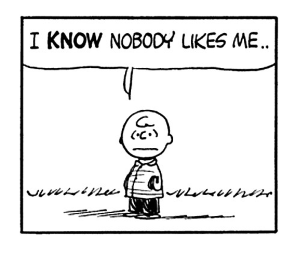“I’m sure somebody will get in touch with you”, sneered the Google developer, closing a phone interview I went through years ago. By then I knew I wouldn’t get the job, but these words and their tone convinced me that I shouldn’t try again for years to come. The way in which a company rejects job candidates speaks tomes about its culture.
Google was merely one of many similar experiences. I once called up a company to ask for my interview’s results, having received no answer. The lady I connected with looked up my application and replied, “oh, says here you know too little about the software development process”. Thanks for telling me.
Rejection happens to the best of us. History knows countless cases where individuals were sent away as unfit for a job, then built exceptional success elsewhere. Without much digging:
- Chris Wanstrath was rejected for job at Yahoo and went on to found GitHub.
- Larry Page and Sergey Brin couldn’t sell Google for a measly $1M to Yahoo, Excite and Infoseek, later rejected Yahoo’s $3B buyout offer.
- J.K. Rowling’s Harry Potter was rejected by several publishers, one accepted and she became one of the richest women in the world.

It’s tempting to think of a candidate who didn’t pass the interview as just not smart or talented enough. That’s almost always bollocks. It’s much more likely that the person you just met either
- didn’t work long enough with the domain you interviewed for; or
- doesn’t have the right profile - character or set of talents.
That means the same person might become a very good match later on, when he or she gains more experience (1), or a different position opens up, calling for their unique skills (2). Besides, in the rapidly shifting world of business, one day you could again be meeting that same person, and this time you’ll be the one answering questions.
Leaving candidates with a bad memory of the recruitment process is therefore ludicrous, and great companies, like Fog Creek Software, know it:
Recruiting is a series of delicate communications. It’s about managing a candidate’s experience and expectations throughout the interview process. It’s marketing and PR: everyone you talk to leaves with an impression of the company. A recruiter creates the company’s brand, and, if done right, leaves a candidate still wanting to work for you even after they’ve been rejected. [emphasis mine]
Liz Hall, Lights, Camera, Offer!, Fog Creek Software (website gone)
It’s really very simple, though admittedly not easy. Every candidate should receive
- honesty - a full evaluation of their interview, time permitting;
- constructiveness - advice on how they may improve to become ready for the position they applied for; and
- positivity - all of the above in a friendly, respective manner.
Such experiences provide answers to the often unsaid questions every promising candidate will have: Will I be given freedom to fail and the support to learn from it? How will I be told when I err and how I can correct my ways? Is this a place where I can grow?
Yours may a company that does all that for employees, but you have to make sure it shows just as vividly in your interviews, especially those where someone gets rejected.
Just finished writing a lengthy feedback to one of our job applicants. I believe it's super-important to explain why it's not the right fit.
— Borys Musielak (@michuk) October 10, 2013
People remember. Negative experiences remain in memory much sharper than positive ones, and every rejection by nature is negative already. Don’t make it worse. You want people to see your company as a great place that just may not have been fitting at the time:
@mpaluchowski sooo true. I keep my rejection letter from the Australian Embassy up to this day. The Ambassador herself signed it!
— Jędrek Stępień (@mentalspl) June 7, 2014